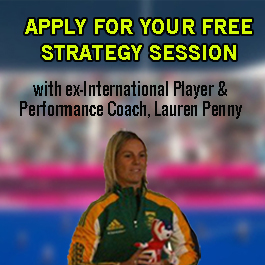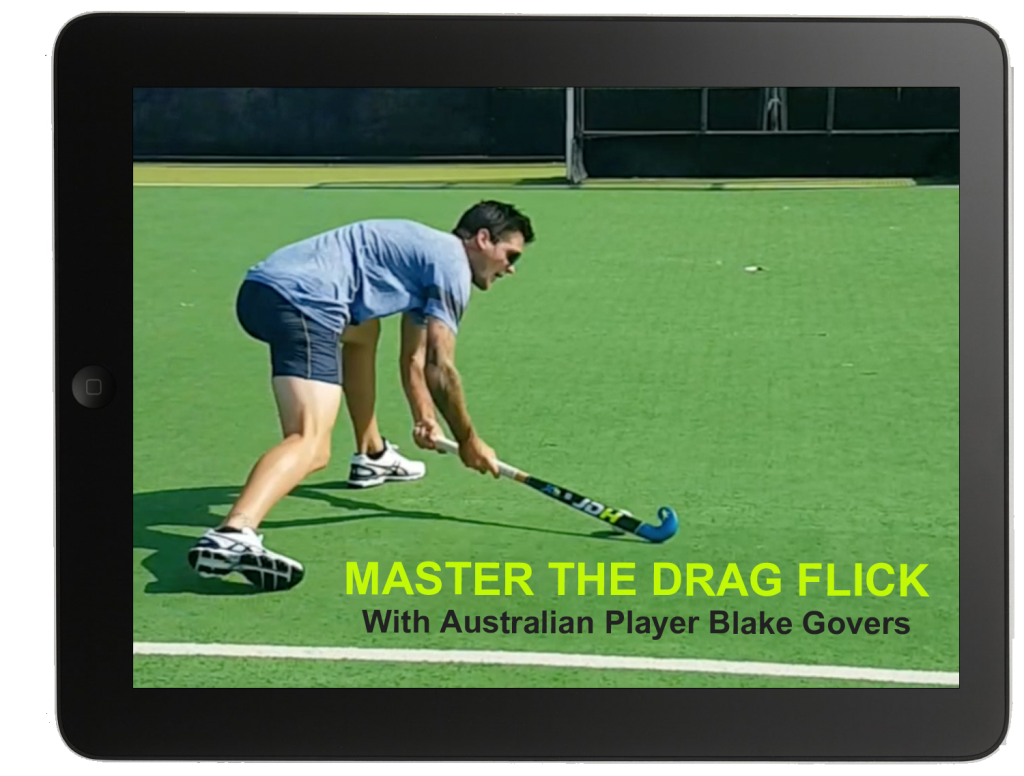“Take control of your emotions”
How do you feel when an umpire makes several bad decisions in a game?
What about when your team mate doesn’t pass you the ball even though you’re open and possession is turned over again?
How about when you can’t seem to do a skill even though you’ve practiced it or you make mistakes in a game that you shouldn’t be making?
These things can be pretty frustrating but how you deal with your emotions in the moment will determine how you perform.
In fact, it is a big determining factor between good and great players.
That is why, in my opinion, being a great hockey player is not just about being skilful, there is so much more to it than that.
Everyone gets frustrated from time to time, it’s a natural feeling that we normally get when we can’t do something or when our path is blocked from achieving something, whether it is scoring a goal, winning or losing a game or not being selected.
Frustration is an emotion that has been hardwired into us and is often thought of as a negative emotion.
But it actually starts out as a good emotion because it is simply a message from the brain saying that something isn’t working which gives us extra motivation to remove problem or obstacle.
What often happens is that we then try harder and this extra effort can either help us to clear the problem or if we don’t overcome it that is when it can become harmful.
When frustration builds up it is likely to affect your decision making which often causes you to make mistakes and leads to lower performance and less enjoyment.
If frustration is not dealt with it can then trigger an emotional chain, turning frustration into anger, which can further lead to despair, where we want to quit.
Anger is a very strong and dangerous emotion and one that you want to steer clear of as it can result in doing things that we later regret.
How you perceive a situation will determine your emotions.
This is processed automatically in your unconscious mind and is dictated by your thoughts, beliefs from past experiences and your values.
Your brain runs patterns without you even realising, which is why people often react the same way to situations.
That’s why it’s so important to train your unconscious mind so you can learn to channel these emotions positively, which is something I spend a lot of time helping players with.
Let’s use bad umpire decisions as an example:
If you strongly believe that the umpire is biased or unfair you will probably feel more frustrated in the game than someone who accepts that umpires are also human and they makes mistakes too.
Consider the difference between the thought
“this umpire is terrible”
versus
“I better get back to close down that player”
This is PROBLEM focussed thinking VSSOLUTION focussed thinking.
As humans we naturally tend to be better as seeing problems than we are at seeing solutions. When we are problem focussed we end up worrying more about things we can’t control and our frustration levels seem to escalate.
Frustration is a feeling we get when we don’t feel like we have control of a situation.
A great question to ask yourself when you are frustrated is:
“What is ONE thing I can do to make this situation better?”
For example it may be to close down your opponent to force them to make a mistake, communicate with a team mate, keep the ball out of contact (so the umpire can’t make a bad decision), to re-lead, etc.
This not only distracts you from the problem but it puts you into a solution focussed mindset, where your attention is drawn within to what you CAN control.
Have you ever let your emotions or feelings of frustration get in the way of something you were trying to do?
I’ve always considered myself to be a passionate player with a competitive drive, but for a long time it really played against me because my frustration affected my game and was probably the #1 thing that held me back.
In the heat of the moment I’d swear at umpires and say things that I later regretted which then lead to guilt and shame. It’s not something I am not proud of, but if sharing this can help you then it’s worth it.
Once I had spent time working on managing my emotions in games I started scoring more goals, playing more consistently which eventually lead to getting noticed and reaching international level.
Here are 5 Tips To Overcome Frustration:
1) Increase your self-awareness
Take some time to think about what tends to frustrate you, how you’ve reacted in the past and how you can deal with it better in future.
Observing your behaviour will help you to increase your self awareness so you have more control in the heat of the moment.
2) Identify the warning signs
What are the warning signs when you’re getting frustrated?
Does your heart rate increase, palms get sweaty, bad verbal language, hit the ground with your stick, what thoughts enter your mind, etc?
Recognise the warning signs to catch yourself out in the heat of the moment.
3) Don’t play the blame game
When things don’t go our way there is a natural tendency to blame others such as umpires, team mates, coach or the opposition but recognise that this isn’t going to help the situation. Own up and take responsibility for any mistakes you made and learn from them.
4) Ask yourself this question
Stay focussed on what you can control by using the question “what is the ONE thing I can do to make this situation better?”
This will help you to stay solution focussed.
5) Bring your attention to your breathing
They say counting to 10 will help you to feel calmer, however this isn’t always possible in a game situation, particularly in a fast game like hockey.
Instead take a moment to bring your attention to your breathing, take one deep breathe filling your lungs and then exhale hard letting all the air out and consciously letting go of whatever is bothering you.
WANT SOME HELP?
If you ever let your emotions get the better of you or you want some guidance you can Apply For a Strategy Session Here









